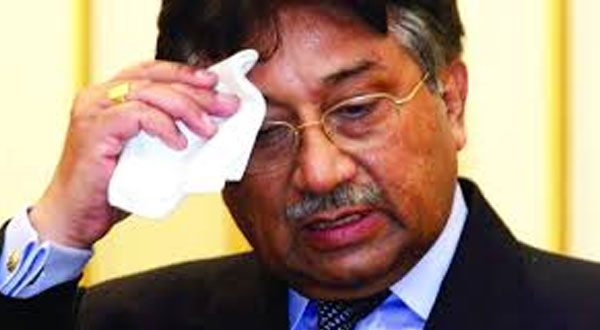ISLAMABAD: A special court on Friday scheduled the hearing of the high treason case against former military ruler Pervez Musharraf for August 20.
On July 6, lawyer Akram Sheikh stepped down as the head of the prosecution team tasked by the previous federal government to prosecute Musharraf under Article 6 of the Constitution.
According to sources, a meeting held on August 1 between the three-member bench, headed by Peshawar High Court (PHC) Chief Justice Yahya Afridi and comprising chief justices of Lahore and Balochistan High Courts, decided to resume the case which pertains to the imposition of extra-constitutional emergency in the country in 2007. The judges will be holding another meeting on August 13 in Lahore.
Legal experts call the case – pending since 2013 – a big test for the superior judiciary. Major party leaders were also voicing concerns over why the courts were are not taking cognisance of the case, arguing that treason is a graver offence than others, including corruption.
The former military dictator was indicted in March 2014 after he made an appearance before the court, rejecting all charges against him in front of the three-member special bench. The charges read out to Musharraf were the same that were slapped by the government in 2013 at the time of the formation of the special bench – subverting and circumventing the Constitution by imposing emergency on November 3, 2007.
On March 18, 2016, the former president flew to Dubai for medical treatment shortly after his name was removed from the Exit Control List (ECL) on the Supreme Court’s directives.
On May 11, 2016, a three-judge bench, headed by former PHC CJ Mazhar Alam Khan Miankhel, declared former president Musharraf a proclaimed offender (PO) in the high treason case. The special court had directed the interior ministry and the Federal Investigation Agency (FIA) to advertise the court verdict about the confiscation of his property.
A year later, a special court restrained Musharraf’s counsel from presenting his arguments, noting that it could not hear the lawyer of an absconder.





